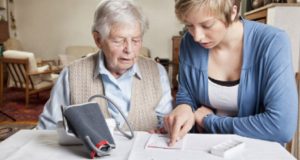People Should Have More Control Of Social Care Services
 NICE is urging councils in England to help adults have more control over day-to-day tasks like cooking and cleaning.
NICE is urging councils in England to help adults have more control over day-to-day tasks like cooking and cleaning.
In a new guideline, out for public consultation, NICE says adults who need social care should feel in control and be able to live life as they want.
In 2016, only a third of adults using social care services (33%) felt they had as much control as they wanted over their daily life.
Professor Mark Baker, director of the NICE centre for guidelines said: “Social care is personal, it is about helping people live their life as they want. Our committee looked at the views of people using social care services to find out what they really valued, such as having more control in how their care is planned. We have issued a set of draft recommendations to help providers deliver the care that people want and need.”
NICE says staff should avoid making assumptions about a person’s capacity to be in control of their own care, for example, if they are severely disabled.
It suggests using communication aids, such as a picture book, to help people express their views. Interpreters can also be brought in to help people speak in their chosen language.
The guideline also includes recommendations on assessing people’s needs in line with statutory requirements and planning care.
The advice covers any area where adults receive social care, including people’s own homes, residential care and community settings. It says commissioners should provide an independent advocate – someone who does not work for the service and is not a family member or friend – for people who may struggle to communicate their needs. For example, if the person has a learning disability.
NICE says that local authorities should try to involve people in decision-making outside of their direct care. For example, people should sit on interview panels when recruiting and training staff. Or it could include receiving information from people currently using services or reviewing existing complaints.
If people want to get extra help with everyday tasks such as cooking, cleaning or shopping, the guideline says to discuss their options and support them to recruit suitable personal assistants.
Alice Maynard who chaired the group that developed the NICE guideline said: “Those of us who use social care services need them to be able to live an ordinary life. If services are not delivered well, our lives become difficult at best and worthless at worst. This guideline sets out what good social care should be.
“We have issued a set of recommendations we believe will allow people to live ordinary, dignified, worthwhile lives.”
In 2015-16, there were more than 800,000 people receiving long-term adult social care support in England. During this time services also responded to a further 1.8 million new requests for care and support






